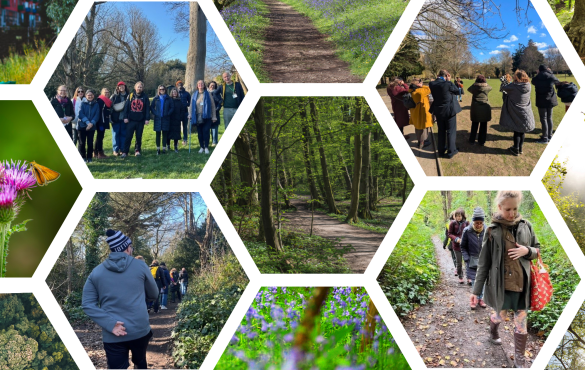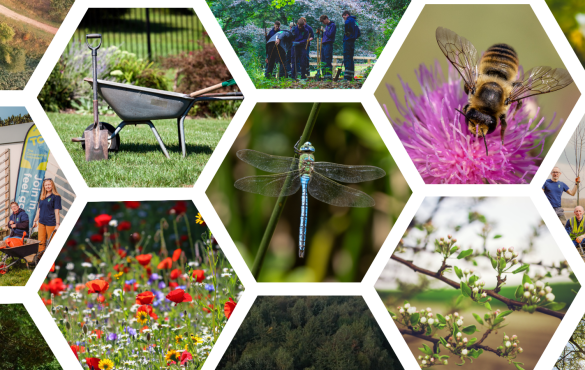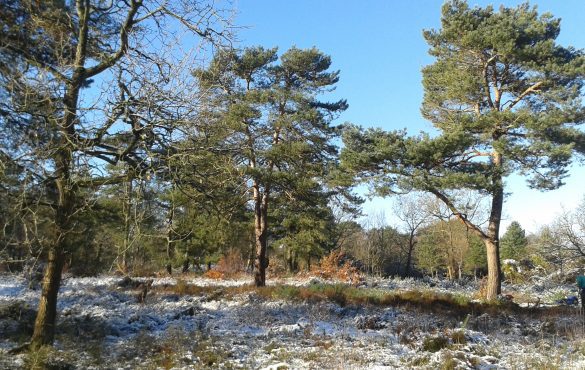Every 7th of April is World Health Day, a global health awareness day set up by the World Health Organization (WHO). In 2022, the theme being brought to our attention is ‘our planet, our health’.
This is hugely important to us at The Conservation Volunteers with our focus on connecting people and green spaces, and it’s a connection that has become increasingly resonant and increasingly harder for everyone to ignore.
The state of affairs on World Health Day
The WHO estimates that more than 13 million deaths around the world each year are due to avoidable environmental causes, which also cause illness and loss of livelihood.
Possibly the most
It may be difficult to envision what such a change would mean for us and our health directly, but we are already seeing the effects of global warming in the form of heatwaves, floods, droughts, landslides and wildfires that all endanger human and animal life and disrupt people’s livelihoods.
Many of us were shocked by the fires in Australia and California of recent years and seeing the reports of vast swathes of land being damaged, people forced to evacuate and thousands of animals perishing. It’s easy to see how devastating events such as these affect stress levels, health choices made due to loss of income, and direct effects from smoke inhalation. Some people’s homes will even be made completely inhabitable, especially around the equator, as temperatures and sea levels continue to rise.
Another environmental problem we have contributed to with a very measurable impact is air pollution. Air pollution occurs naturally for reasons such as dust storms and volcanic activity, but we have massively added to the burden with combustion of fossil fuels and waste. The resultant unclean air often causes fatal health problems such as respiratory infections, heart disease and lung cancer.
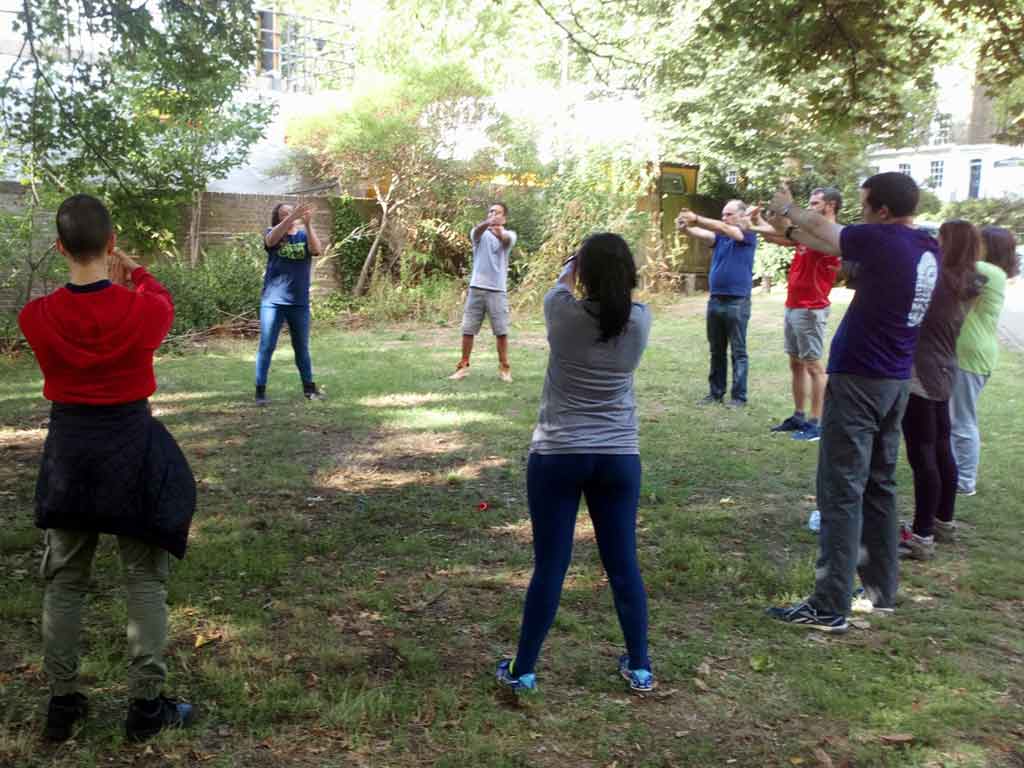
Obesity is a major health issue affecting a lot of people and in the U.K. is costing billions to the NHS each year with projections set to rise. The fast-food industry is a major contributor to obesity and can affect the environment as it greatly relies on factory-farmed meat and dairy. This consumes a lot of land and water and contributes to the emission of greenhouse gases including methane emissions from agriculture. Obesity is linked to greater all-causes of death mortality, many diseases such as heart disease and type 2 diabetes as well as low quality of life.
The packaging needed for fast food also adds to the toll of plastic waste, which has made its way into our food chain and according to a recent study, even into our blood! A WWF study revealed that humans may be eating the equivalent of a credit card of plastic every week, and that study was done pre-Covid and pre-single use plastic masks.
We don’t yet exactly know what the long-term health effects of plastic in our bodies are but we do know that plastic is damaging our oceans, freshwater and land ecosystems on which all life is very much dependent.
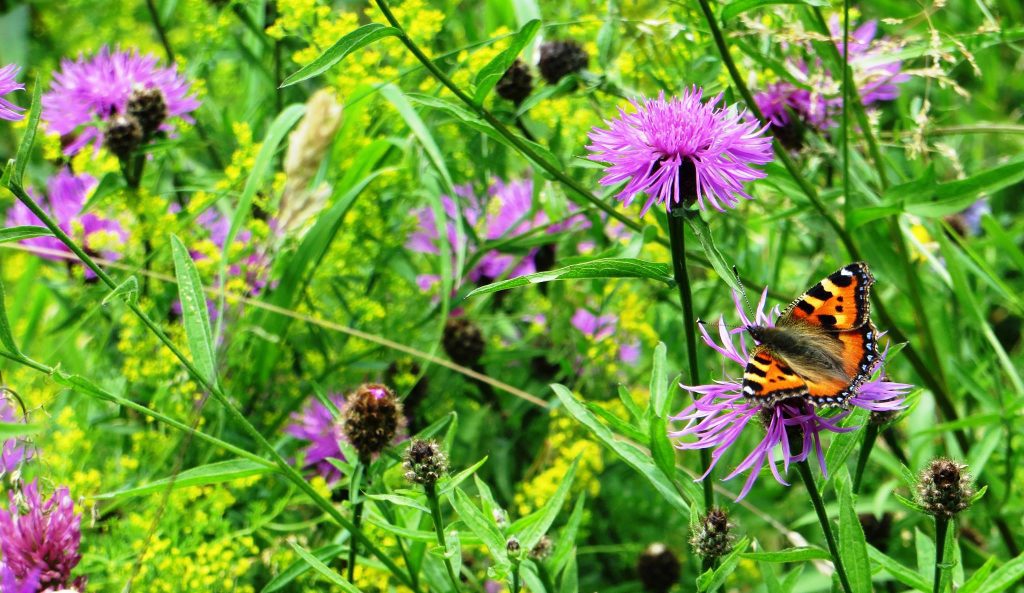
How can I make a difference?
So in the face of these extreme issues what are some of the ways we can help to mitigate what may seem like problems far beyond our individual capacities to deal with or even think about without being overwhelmed by them?
We can all start by making choices in our daily lives that will have a direct impact, and of course the more of us involved, the bigger that impact can be.
We can choose – where we can – to buy local produce in favour of items being shipped from overseas. We can strive for more meals made with fresh fruit and vegetables over processed food or fast food. We can even grow some of our own! Get started with this guide by our team in Birmingham.
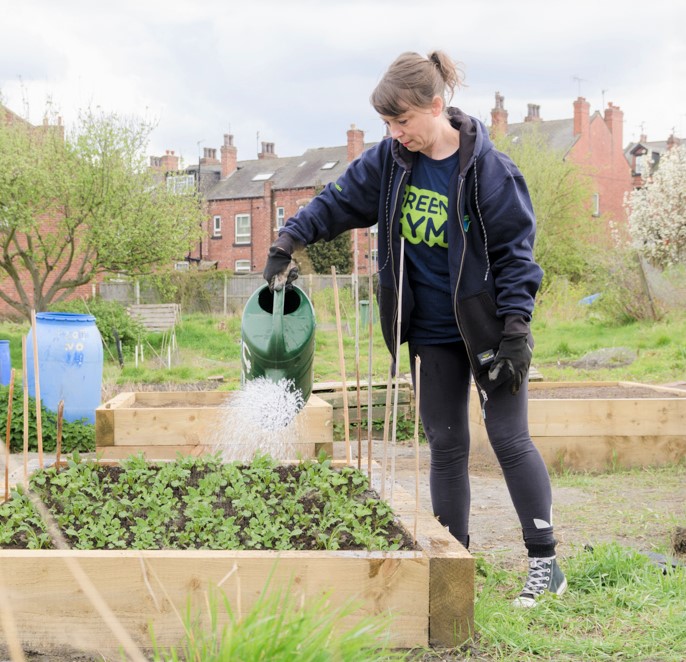
We can aim to buy fewer packaged products, avoid single-use plastic, and reduce our purchases of fast fashion, opting for second-hand and up-cycled instead. If we can walk or cycle instead of driving this can also go a long way to reducing reliance on energy while benefitting our health. We can do our bit to improve air quality by joining a community tree planting event and adding plants to our garden, patio or inside our home.
Of course we can’t act alone. The government and manufacturers also need to incentivise consumers by making these more environmentally-friendly options more available.
For those of us who can spare

A positive outlook
The good news is that nature is surprisingly resilient and when we give it a break it can build back. We can see this in Marine Protected Areas and in protected areas of forest; we even saw this during nature’s temporary reprieve during the pandemic as biodiversity grew in many areas. Air pollution also decreased.
Living in an increasingly virtual world, we may often feel separate from nature and as if the natural world is distant from us, something narrated by TCV Vice President Sir David Attenborough in front of the safety of our screens. But we are part of the ecosystem. We rely on it to purify our air, sequester carbon, cycle nutrients and pollinate the food we eat.
When we treat the planet and wildlife destructively, we get direct consequences for not just the planet, but for our health. That’s why the hope going forward is that we can find a way to live in balance with nature, finding solutions that will benefit our planet, and therefore, our health.

Keep up to date with the latest news and activities from The Conservation Volunteers by following on Twitter, Facebook, LinkedIn and Instagram. You can also sign up to receive our Greenzine newsletter for more ways to get involved – including more ideas for supporting planetary and your own health.


